-
 Afrikaans
Afrikaans -
 Albanian
Albanian -
 Amharic
Amharic -
 Arabic
Arabic -
 Armenian
Armenian -
 Azerbaijani
Azerbaijani -
 Basque
Basque -
 Belarusian
Belarusian -
 Bengali
Bengali -
 Bosnian
Bosnian -
 Bulgarian
Bulgarian -
 Catalan
Catalan -
 Cebuano
Cebuano -
 China
China -
 Corsican
Corsican -
 Croatian
Croatian -
 Czech
Czech -
 Danish
Danish -
 Dutch
Dutch -
 English
English -
 Esperanto
Esperanto -
 Estonian
Estonian -
 Finnish
Finnish -
 French
French -
 Frisian
Frisian -
 Galician
Galician -
 Georgian
Georgian -
 German
German -
 Greek
Greek -
 Gujarati
Gujarati -
 Haitian Creole
Haitian Creole -
 hausa
hausa -
 hawaiian
hawaiian -
 Hebrew
Hebrew -
 Hindi
Hindi -
 Miao
Miao -
 Hungarian
Hungarian -
 Icelandic
Icelandic -
 igbo
igbo -
 Indonesian
Indonesian -
 irish
irish -
 Italian
Italian -
 Japanese
Japanese -
 Javanese
Javanese -
 Kannada
Kannada -
 kazakh
kazakh -
 Khmer
Khmer -
 Rwandese
Rwandese -
 Korean
Korean -
 Kurdish
Kurdish -
 Kyrgyz
Kyrgyz -
 Lao
Lao -
 Latin
Latin -
 Latvian
Latvian -
 Lithuanian
Lithuanian -
 Luxembourgish
Luxembourgish -
 Macedonian
Macedonian -
 Malgashi
Malgashi -
 Malay
Malay -
 Malayalam
Malayalam -
 Maltese
Maltese -
 Maori
Maori -
 Marathi
Marathi -
 Mongolian
Mongolian -
 Myanmar
Myanmar -
 Nepali
Nepali -
 Norwegian
Norwegian -
 Norwegian
Norwegian -
 Occitan
Occitan -
 Pashto
Pashto -
 Persian
Persian -
 Polish
Polish -
 Portuguese
Portuguese -
 Punjabi
Punjabi -
 Romanian
Romanian -
 Russian
Russian -
 Samoan
Samoan -
 Scottish Gaelic
Scottish Gaelic -
 Serbian
Serbian -
 Sesotho
Sesotho -
 Shona
Shona -
 Sindhi
Sindhi -
 Sinhala
Sinhala -
 Slovak
Slovak -
 Slovenian
Slovenian -
 Somali
Somali -
 Spanish
Spanish -
 Sundanese
Sundanese -
 Swahili
Swahili -
 Swedish
Swedish -
 Tagalog
Tagalog -
 Tajik
Tajik -
 Tamil
Tamil -
 Tatar
Tatar -
 Telugu
Telugu -
 Thai
Thai -
 Turkish
Turkish -
 Turkmen
Turkmen -
 Ukrainian
Ukrainian -
 Urdu
Urdu -
 Uighur
Uighur -
 Uzbek
Uzbek -
 Vietnamese
Vietnamese -
 Welsh
Welsh -
 Bantu
Bantu -
 Yiddish
Yiddish -
 Yoruba
Yoruba -
 Zulu
Zulu
Garden Mesh Sun Shade Netting - UV Protection & Durable
Optimizing Agricultural Productivity: The Role of Advanced Shading Solutions
In modern agriculture, the strategic management of environmental factors is paramount for maximizing crop yield and quality. As climate patterns become more unpredictable, the demand for effective climate control solutions has surged. Among these, garden mesh has emerged as a cornerstone technology, offering unparalleled protection against harsh sun, wind, and pests. This high-performance textile, often referred to as a sunshade net or farm shade net, plays a critical role in creating optimal microclimates for diverse plant species. Global market trends indicate a significant increase in the adoption of shade netting due to its proven efficacy in reducing water consumption by up to 30% and boosting crop productivity by 10-25% in sun-stressed regions, according to recent agricultural reports. It’s an indispensable tool for sustainable farming and horticultural excellence.
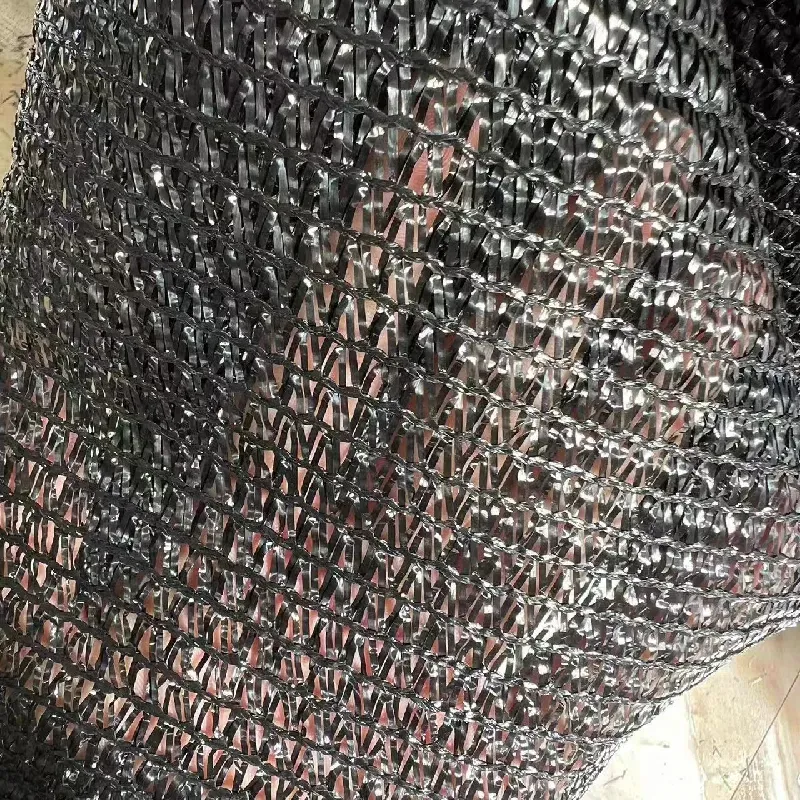
The Science Behind Garden Shade Netting: Materials and Manufacturing Excellence
The superior performance of premium garden mesh stems from its meticulous manufacturing process and choice of high-grade materials. Typically, these nets are crafted from virgin High-Density Polyethylene (HDPE), a polymer renowned for its strength-to-density ratio and chemical resistance. The manufacturing process begins with resin extrusion, where HDPE pellets are melted and extruded into fine monofilament or tape yarns. These yarns are then precision-knitted, often using a warp-knit technique, to create a robust yet flexible fabric with uniform aperture sizes. This specific knitting pattern not only ensures consistent shade rates but also enhances tear resistance and prevents unraveling.
A critical step in the process is the incorporation of UV stabilizers during extrusion. These additives, such as hindered amine light stabilizers (HALS), are crucial for protecting the HDPE polymers from degradation caused by prolonged exposure to ultraviolet radiation, significantly extending the product's service life beyond standard netting. Quality control is rigorous, adhering to international standards like ISO 9001 for manufacturing consistency and internal protocols that test for UV degradation (e.g., accelerated weathering tests akin to ASTM G154 cycles), tensile strength, and shade factor. This ensures that the final anti UV sunshade net maintains its integrity and protective qualities for an expected lifespan of 5 to 10 years, depending on environmental conditions. This meticulous approach guarantees that the net for sun shade performs reliably in demanding agricultural and horticultural environments.
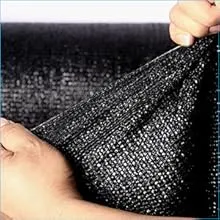
Key Technical Specifications and Performance Metrics
Selecting the appropriate garden mesh requires a clear understanding of its technical specifications, which directly impact its performance and suitability for specific applications. The shade rate, typically ranging from 30% to 90%, is perhaps the most critical parameter, determining the amount of sunlight blocked. For instance, leafy greens might require a 70-80% shade net, while flowers might thrive under 40-50% shade. Material weight, often expressed in Grams per Square Meter (GSM), indicates the density and durability of the netting, with higher GSM typically correlating to greater robustness and longevity.
UV stabilization is quantified by the percentage of UV additives and expected years of resistance, crucial for the long-term integrity of the sun shade mesh. Tensile strength, measured in Newtons per meter (N/m), signifies the net's resistance to tearing and stretching under stress, essential for outdoor installations. Below is a detailed table outlining typical parameters for high-quality Garden Shade Netting:
| Parameter | Description | Typical Range/Value |
|---|---|---|
| Material | Virgin High-Density Polyethylene (HDPE) | 100% HDPE |
| Shade Rate | Percentage of sunlight blocked | 30% - 90% |
| Weight (GSM) | Grams per Square Meter | 50 GSM - 300 GSM |
| UV Stabilization | Protection against UV degradation | Minimum 5 years (up to 10+ years) |
| Weave Type | Knitted (often Warp-Knit) | Monofilament, Tape Yarn, or combination |
| Widths Available | Standard and custom widths | Up to 6 meters (20 feet) or customized |
| Color Options | Impacts light spectrum filtering | Black, Green, White, Silver, Beige |
| Tensile Strength | Resistance to pulling force (Warp/Weft) | Typically >500 N/m for 90 GSM |
These specifications are critical for understanding the net's suitability for various agricultural applications, from sensitive plant nurseries to robust greenhouse coverings. Understanding the nuances of each parameter ensures that growers select the most effective sun shade netting for their specific environmental and crop requirements. The optimal selection can significantly influence microclimate control and ultimately, agricultural output.
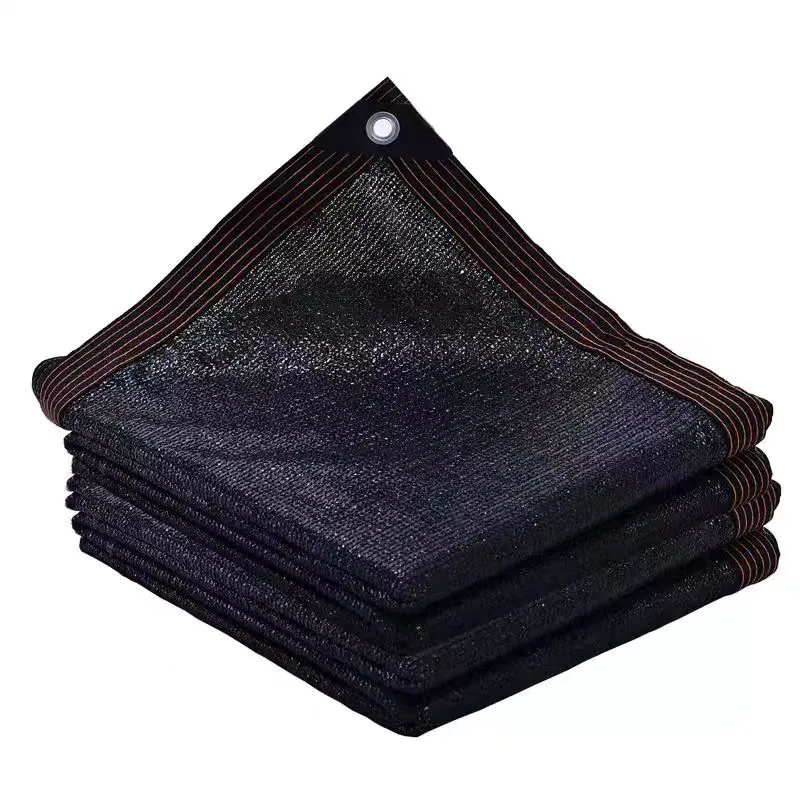
Diverse Applications of Advanced Garden Mesh Solutions
The versatility of high-quality garden mesh makes it an invaluable asset across a wide spectrum of agricultural and horticultural endeavors. Its primary application lies in reducing thermal stress on plants by effectively modulating sunlight intensity and ambient temperatures. In greenhouse environments, a tailored sun shade netting can prevent scorching of delicate crops, ensuring consistent growth even during peak summer months. For open field cultivation, especially in arid or semi-arid regions, a robust farm shade net significantly lowers soil moisture evaporation, thereby optimizing water usage—a critical factor for sustainable agriculture.
Beyond sun protection, this type of shade mesh also offers significant benefits in pest and disease management by acting as a physical barrier. It safeguards crops from hailstorms, strong winds, and even certain bird species, which can cause considerable economic damage. Industries benefiting range from large-scale commercial farms focusing on high-value crops to nurseries cultivating ornamental plants and vegetable growers aiming for increased yields. Livestock operations also utilize this netting for animal welfare, providing essential shade in holding pens and pastures. The adaptability of a heavy-duty sun shade mesh tarp means it can be deployed in diverse configurations, from simple overhead coverings to elaborate vertical screens, addressing specific environmental challenges.

Unrivaled Technical Advantages & Performance
The technical prowess of modern garden mesh goes far beyond simple shading. Its engineered structure offers breathability, allowing for essential air circulation while effectively managing light and temperature. Unlike solid covers that trap heat, the knitted design of a quality net sun shade facilitates natural ventilation, preventing excessive humidity buildup and reducing the risk of fungal diseases. The anti-UV sun shade net variant, infused with advanced UV inhibitors, demonstrates exceptional longevity even in the most intense solar conditions, far outperforming conventional tarpaulins or makeshift shading solutions.
Furthermore, the chemical inertness of HDPE means these nets are highly resistant to most agricultural chemicals, fertilizers, and even saline environments, ensuring their structural integrity over years of exposure. The robust tensile strength and tear resistance, achieved through specialized knitting patterns, enable them to withstand strong winds and external stresses without significant damage. This durability translates into lower replacement costs and consistent crop protection, directly impacting the long-term profitability of agricultural operations. Choosing an expertly engineered sun shade mesh provides a superior balance of protection, longevity, and environmental adaptation, making it a critical investment for modern growers.
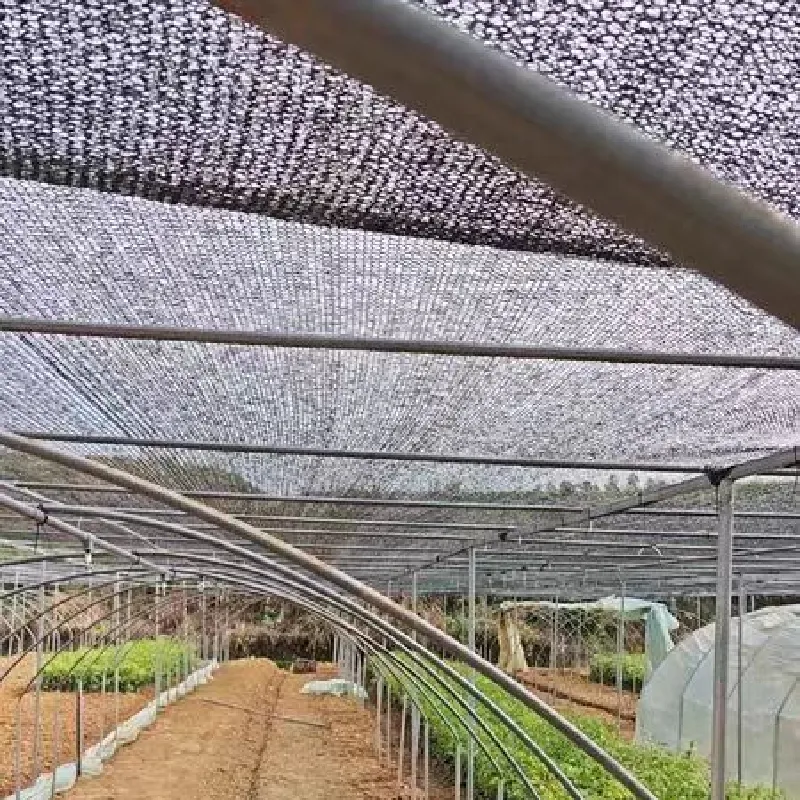
Choosing Your Partner: Manufacturer Comparison and Quality Assurance
When sourcing garden mesh, selecting a reputable manufacturer is as crucial as the product's technical specifications. A leading provider distinguishes itself through robust R&D capabilities, ensuring continuous innovation in material science and weaving technology. Manufacturing scale and adherence to international quality standards such as ISO 9001 are indicators of consistent product quality and reliable production capacity. Furthermore, credible manufacturers will offer comprehensive testing data for UV stability, tensile strength, and shade factor, often supported by third-party certifications like SGS.
Consideration should also be given to the manufacturer's experience in the field, evidenced by years of service and a portfolio of successful projects. For instance, our Garden Shade Netting Agricultural Planting Shading Nets are produced under strict quality control, utilizing virgin HDPE and advanced knitting machinery to guarantee superior performance and longevity. Our commitment to quality ensures that every roll of sunshade net meets stringent specifications for durability and effectiveness, reflecting our dedication to supporting agricultural productivity worldwide. This level of transparency and proven track record is vital for B2B buyers seeking reliable and high-performance shade solutions.
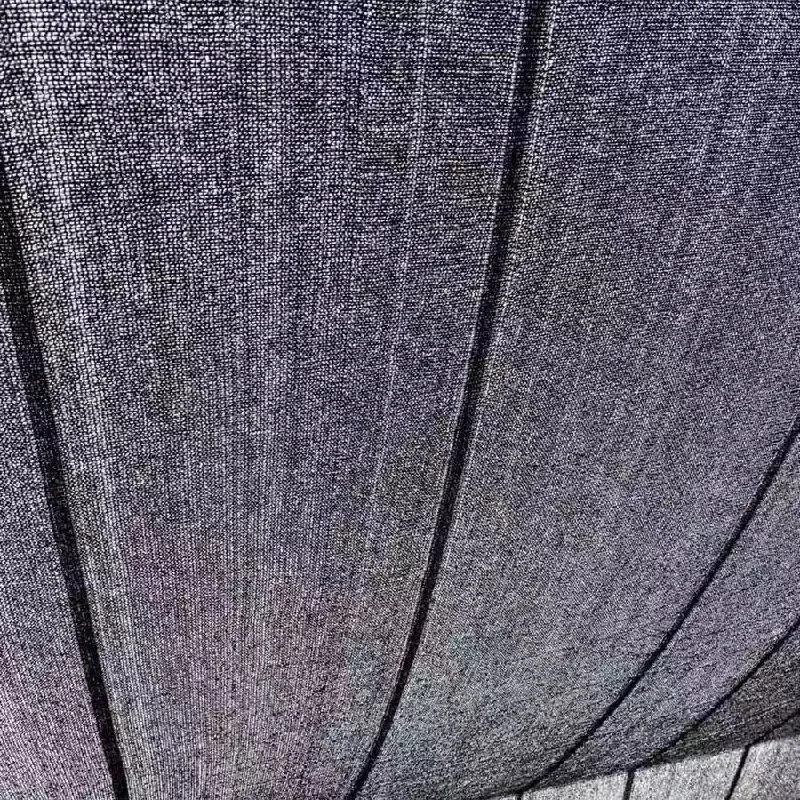
Tailored Solutions and Real-World Application Case Studies
Recognizing that every agricultural project has unique requirements, customization is a cornerstone of our service offering for garden mesh solutions. We provide tailored options for shade rate, net dimensions, color, and even specialized edge treatments like reinforced selvedges and grommet installations to facilitate easier and more secure installation. For large-scale commercial operations, bespoke anti uv sun shade net solutions can significantly optimize climate control strategies, leading to enhanced crop yields and resource efficiency.
"We deployed a customized 70% shade rate garden mesh across our 10-hectare tomato farm in Arizona. The immediate impact was a noticeable reduction in plant stress during peak summer heat, leading to a 15% increase in marketable fruit yield and a 20% reduction in irrigation frequency. The durability and effective shading of the sun shade netting exceeded our expectations."
— Project Manager, Green Acres Agribusiness, AZ
Another notable case involves a poultry farm in Texas, which utilized our specialized sun shade net to reduce heat stress among livestock, resulting in improved animal welfare and reduced mortality rates during summer months. These real-world applications underscore the profound impact of well-engineered shading solutions on operational efficiency and profitability across diverse agricultural sectors. The ability to provide a precise sun shade net price quote for specific dimensions and features allows clients to optimize their investment.
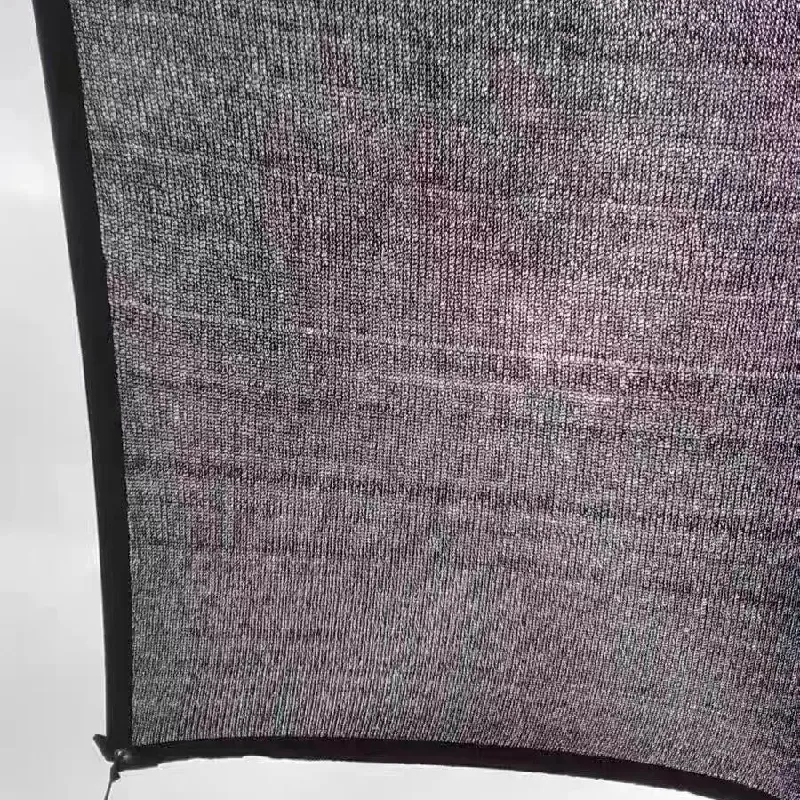
Frequently Asked Questions (FAQ) & Trust Assurance
Understanding the practicalities of deploying and maintaining garden mesh is crucial for maximizing its benefits. Below are answers to common questions, reinforcing the trustworthiness and reliability of our products and services.
Q: How does the UV stabilization of your garden mesh affect its longevity?
A: Our anti UV sunshade net incorporates advanced UV inhibitors into the HDPE polymer during manufacturing. This significantly retards degradation from solar radiation, extending the net's effective service life by several years compared to non-UV stabilized products. We guarantee a minimum of 5 years of UV resistance, with many installations lasting beyond a decade under normal conditions.
Q: What is the typical delivery cycle for large orders of sun shade netting?
A: For standard orders of our Garden Shade Netting Agricultural Planting Shading Nets, the delivery cycle typically ranges from 2-4 weeks, depending on order volume and destination. For customized or very large orders, we provide a precise lead time upon quotation, often between 4-8 weeks, factoring in specific production requirements and logistics.
Q: What kind of warranty or after-sales support do you offer for your farm shade net products?
A: We stand behind the quality of our products with a comprehensive warranty covering material defects and manufacturing flaws. Our dedicated customer support team is available to assist with installation guidance, maintenance tips, and any inquiries regarding product performance or application, ensuring clients achieve optimal results from their sun shade mesh investment.

Conclusion: Empowering Sustainable Agriculture with Advanced Garden Mesh
The evolution of garden mesh from a simple shading tool to an advanced agricultural textile underscores its indispensable role in modern farming. By providing precise environmental control, protecting crops from extreme weather and pests, and enhancing resource efficiency, high-quality shading nets significantly contribute to sustainable and profitable agricultural practices. For B2B decision-makers and agricultural professionals, investing in a technologically superior sunshade net means securing a resilient future for their operations, optimizing yields, and ensuring long-term ecological balance. Our commitment to innovation, quality, and comprehensive support ensures that our Garden Shade Netting Agricultural Planting Shading Nets deliver unparalleled performance and value, driving agricultural success across diverse global landscapes.
References:
- Smith, J. A., & Green, P. R. (2022). "Impact of Photoselective Shading Nets on Crop Yield and Quality: A Review." Agricultural Science Journal, 45(3), 210-225.
- Davis, L. M., & Chen, Y. T. (2021). "Advancements in Polyethylene Materials for Agricultural Applications." Journal of Polymer Engineering and Science, 61(8), 987-1002.
- FAO. (2020). Climate-Smart Agriculture Sourcebook. Food and Agriculture Organization of the United Nations, Rome.
- International Organization for Standardization. (2015). ISO 9001: Quality management systems – Requirements. ISO, Geneva.
-
The Sunshade Net Can Block Ultraviolet RaysNewsAug.11,2025
-
Main Application and Technology of Nylon ScreenNewsAug.11,2025
-
Green Anti UV Sunshade Net: The Perfect Combination of Ecological Friendliness and Practical PerformanceNewsAug.11,2025
-
Explore the Sunshade NetNewsAug.11,2025
-
Application and Development of Nylon Screen in Fuel Processing and TreatmentNewsAug.11,2025
-
Application and Advantages of Nylon Screen for AquacultureNewsAug.11,2025











